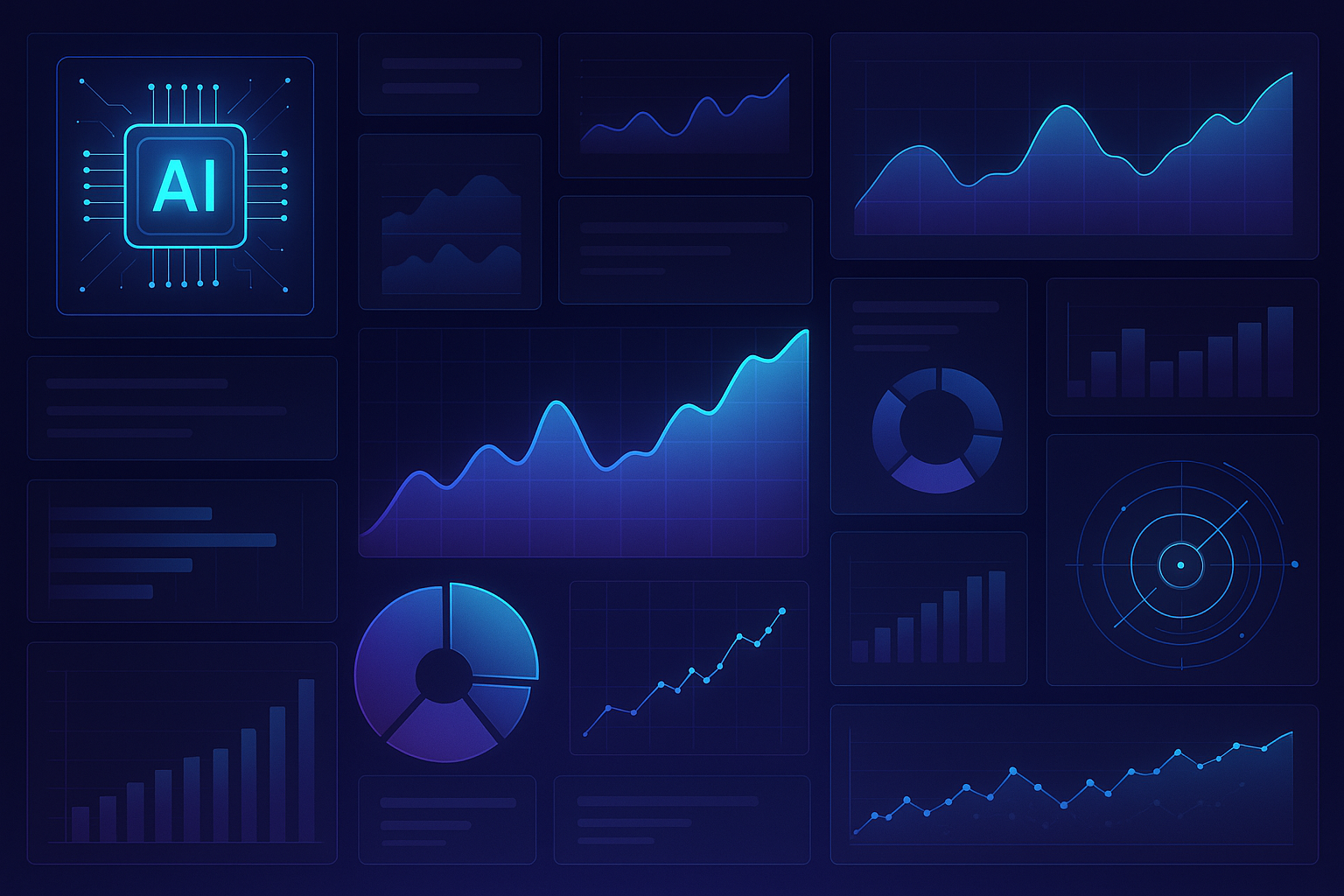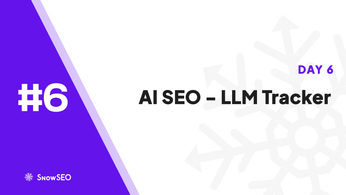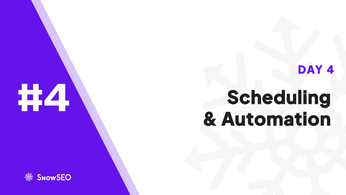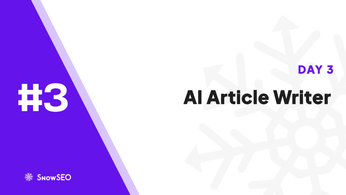
2025's Best AI SEO Tools That Deliver Results
Table of Contents
Discover the AI SEO tools revolutionizing digital marketing in 2025. With numerous options available, choosing the right AI tool can be daunting. Our curated review will make the choice easier, focusing on top performance and future trends. Featuring insights from industry experts and real user experiences, this guide highlights the tools that deliver measurable results. As AI continues to transform search optimization, staying informed is essential for maintaining a competitive edge in the evolving digital landscape.
In 2025, the landscape of AI-driven Search Engine Optimization (SEO) has evolved significantly, with several platforms leading the charge in enhancing digital visibility through advanced artificial intelligence capabilities.
Key Features of Each Platform
- AI EngineBoost: This platform acts as a transformative layer, integrating traditional SEO with next-generation AI SEO, Answer Engine Optimization (AEO), and Generative Engine Optimization (GEO). (en.wikipedia.org)
- Alli AI: Offers automated on-page SEO, live editing, keyword tracking, AI schema, and internal linking, streamlining the optimization process. (en.wikipedia.org)
- RankIQ: Provides AI-powered content optimization, Latent Semantic Indexing (LSI) keyword suggestions, and comprehensive rankings audits to enhance content relevance. (en.wikipedia.org)
- Surfer: Features an AI content editor, keyword research tools, topical maps, and a SERP analyzer, facilitating data-driven content strategies. (en.wikipedia.org)
- Genshark: Specializes in AI-driven content optimization and improving visibility in answer engines, focusing on enhancing presence in AI-generated responses. (en.wikipedia.org)
- SEMrush: Integrates SEO and AEO tracking, offering keyword analytics and competitive insights to inform strategic decisions. (en.wikipedia.org)
- Passionfruit Suite: Delivers AI-generated optimization recommendations and multi-engine tracking, aiding in comprehensive digital strategy development. (en.wikipedia.org)
These platforms exemplify the integration of AI into SEO practices, reflecting a broader industry trend towards leveraging artificial intelligence to enhance digital marketing strategies. According to the 2025 IEEE Tech Impact Study, AI remains the most important current technology, with over half of surveyed tech leaders ranking it at the top. (spectrum.ieee.org)

As AI continues to shape the SEO landscape, these platforms are at the forefront, offering innovative solutions to meet the evolving demands of digital marketing.
Comparative Analysis: Performance and Usability
When evaluating AI-driven SEO platforms, two critical factors emerge: performance—encompassing speed and accuracy—and usability, which pertains to user experience for both novices and seasoned professionals.
Performance Metrics
The efficacy of AI SEO tools is largely determined by their processing speed and the precision of their analytics. Rapid data analysis enables swift decision-making, while accurate insights ensure effective strategy formulation. For instance, platforms that utilize advanced machine learning algorithms can process vast datasets more efficiently, leading to more reliable SEO recommendations.
Usability for Beginners and Experts
A platform’s usability is pivotal in its adoption and effectiveness. For beginners, intuitive interfaces with guided workflows and clear instructions are essential to navigate complex SEO tasks. Conversely, experts require customizable features and advanced analytics to fine-tune strategies. Balancing simplicity for newcomers with depth for experienced users is a hallmark of superior AI SEO platforms.
In summary, the optimal AI SEO platform seamlessly integrates high-performance capabilities with user-friendly design, catering to a diverse range of users.
Effectiveness in Boosting SEO Rankings
In 2025, AI-driven SEO platforms have become pivotal in enhancing search engine rankings through automation. These tools leverage machine learning algorithms to analyze vast datasets, identify patterns, and implement optimization strategies with unprecedented efficiency. By automating tasks such as keyword research, content optimization, and backlink analysis, AI SEO platforms enable businesses to adapt swiftly to evolving search engine algorithms.
A notable example of AI’s impact is the CDC’s AI Accelerator Program, which has significantly improved public health data analysis. The program’s initiatives, like TowerScout, have reduced data processing times by up to 98%, demonstrating AI’s potential to enhance operational efficiency. While this example pertains to public health, it underscores the broader applicability of AI in data-intensive fields, including SEO. (cdc.gov)
However, the effectiveness of AI SEO platforms varies between short-term gains and long-term impacts. In the short term, these tools can rapidly boost rankings by identifying and capitalizing on current trends. Yet, for sustained success, it’s crucial to integrate AI insights with human expertise to develop comprehensive strategies that align with brand values and audience needs.
In conclusion, AI SEO platforms in 2025 offer powerful capabilities to enhance search rankings through automation. Their effectiveness is maximized when combined with human strategic oversight, ensuring both immediate improvements and enduring success in the competitive digital landscape.

Future Trends and Predictions for AI SEO Tools
AI SEO Evolutions to Watch
The landscape of Search Engine Optimization (SEO) is undergoing a significant transformation with the integration of Artificial Intelligence (AI). A pivotal development is the emergence of Generative Engine Optimization (GEO), a concept introduced in 2023. GEO focuses on optimizing content for AI-driven search engines that generate direct, conversational responses, such as ChatGPT and Google’s Gemini. This approach necessitates new strategies, including the use of llms.txt files and AI-specific metadata, to enhance content visibility in AI-generated outputs. (en.wikipedia.org)
As AI continues to evolve, SEO tools are expected to incorporate advanced machine learning algorithms capable of analyzing vast datasets to predict search trends and user behavior more accurately. This progression will enable more personalized and context-aware content recommendations, aligning with the shift towards AI-generated search results.
Moreover, the integration of AI in SEO is anticipated to streamline content creation processes. AI-powered tools can assist in generating high-quality, relevant content efficiently, reducing the time and resources traditionally required. This efficiency is particularly beneficial in adapting to the dynamic nature of search engine algorithms and user preferences.
In summary, the future of AI in SEO is poised to redefine traditional practices, emphasizing the need for innovative strategies that cater to AI-driven search environments. Staying abreast of these developments is crucial for maintaining a competitive edge in the digital landscape.
Practical Tips for Integrating AI SEO Tools
Integrating AI SEO tools into your existing strategies can significantly enhance your website’s search engine performance. Here are some practical tips to ensure a smooth and effective integration:
- Assess Your Current SEO Strategy: Before introducing AI tools, evaluate your existing SEO practices to identify areas that need improvement. This assessment will help you select AI tools that align with your specific needs.
- Choose the Right AI SEO Tools: Select tools that complement your objectives. For instance, if content optimization is a priority, consider AI tools that analyze and suggest improvements for your content.
- Ensure Data Quality: AI tools rely on data to function effectively. Ensure that your website’s data is accurate and up-to-date to maximize the benefits of AI integration.
- Train Your Team: Provide adequate training for your team to effectively use AI SEO tools. Understanding the functionalities and capabilities of these tools is crucial for successful implementation.
- Monitor Performance and Adjust Accordingly: Regularly monitor the performance of AI tools and make necessary adjustments to your SEO strategy. This iterative process ensures continuous improvement and adaptation to changing search engine algorithms.
Common Pitfalls and How to Avoid Them
- Overreliance on AI: While AI tools are powerful, they should not replace human judgment. Use them to augment your strategy, not dictate it.
- Ignoring Data Privacy: Ensure that the AI tools you use comply with data privacy regulations to protect user information.
- Neglecting Content Quality: AI can assist in content creation, but maintaining high-quality, relevant content is essential for SEO success.
By thoughtfully integrating AI SEO tools and being mindful of potential pitfalls, you can enhance your website’s search engine performance and stay competitive in the digital landscape.
Ready to accelerate your rankings on both search engines and AI platforms? Discover how SnowSEO automates your entire SEO workflow—visit snowseo.com to start a free trial or read detailed reviews and see real results today.
Frequently Asked Questions
Q1: How do AI SEO tools differ from traditional SEO tools?
AI SEO tools leverage artificial intelligence to analyze vast datasets, identify patterns, and predict trends, enabling more precise keyword targeting and content optimization. Unlike traditional tools, they can automate tasks such as content generation and backlink analysis, enhancing efficiency and effectiveness. For instance, AI-driven platforms like Semrush offer automated content optimization and real-time rank tracking, streamlining the SEO process.
Q2: Are AI-generated content and SEO strategies reliable?
While AI-generated content can expedite the creation process, its reliability depends on the quality of the AI model and the data it was trained on. Studies have raised concerns about the potential for AI tools to produce low-quality or misleading content, emphasizing the need for human oversight. The University of Surrey highlights that AI tools may weaken the quality of published research, underscoring the importance of critical evaluation. (surrey.ac.uk)
Q3: How can I ensure my website remains visible in AI-driven search results?
To maintain visibility, it’s crucial to optimize content for AI algorithms by focusing on semantic relevance and structured data. Incorporating Answer Engine Optimization (AEO) and Generative Engine Optimization (GEO) strategies can enhance your site’s compatibility with AI-powered search engines. According to Wikipedia, adapting to AI-driven search requires a multifaceted approach that includes traditional SEO, AEO, and GEO.
Q4: What are the ethical considerations when using AI in SEO?
Ethical considerations include ensuring transparency in AI-generated content, avoiding manipulation of search algorithms, and respecting user privacy. The UK Research Integrity Office advises researchers to critically assess AI tools, highlighting the importance of maintaining research integrity and avoiding the dissemination of misleading information. (ukrio.org)
Q5: How do AI-powered search engines impact user behavior?
AI-powered search engines can influence user behavior by providing direct answers, potentially reducing the likelihood of users clicking through to source websites. A study by the Pew Research Center found that users are less likely to click on links when an AI-generated summary appears in search results, indicating a shift in how users interact with search engines. (pewresearch.org)
Conclusion
In 2025, AI-driven SEO tools have become indispensable for enhancing online visibility. These tools offer automated keyword research, content optimization, and backlink analysis, streamlining SEO processes. Selecting the right tool requires assessing specific business needs and scalability. Embracing AI in SEO strategies ensures adaptability to evolving search algorithms, safeguarding long-term digital presence. For a deeper understanding, explore resources like Semantic Scholar and AI-Based Research Tools.





